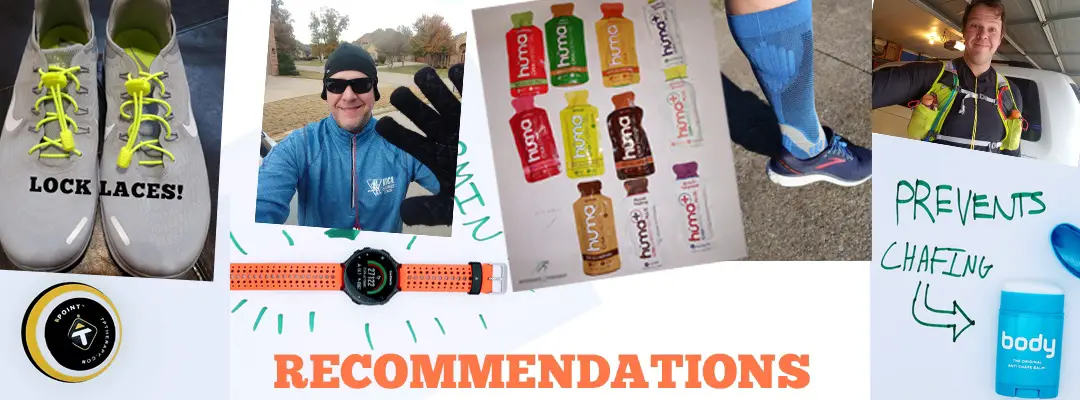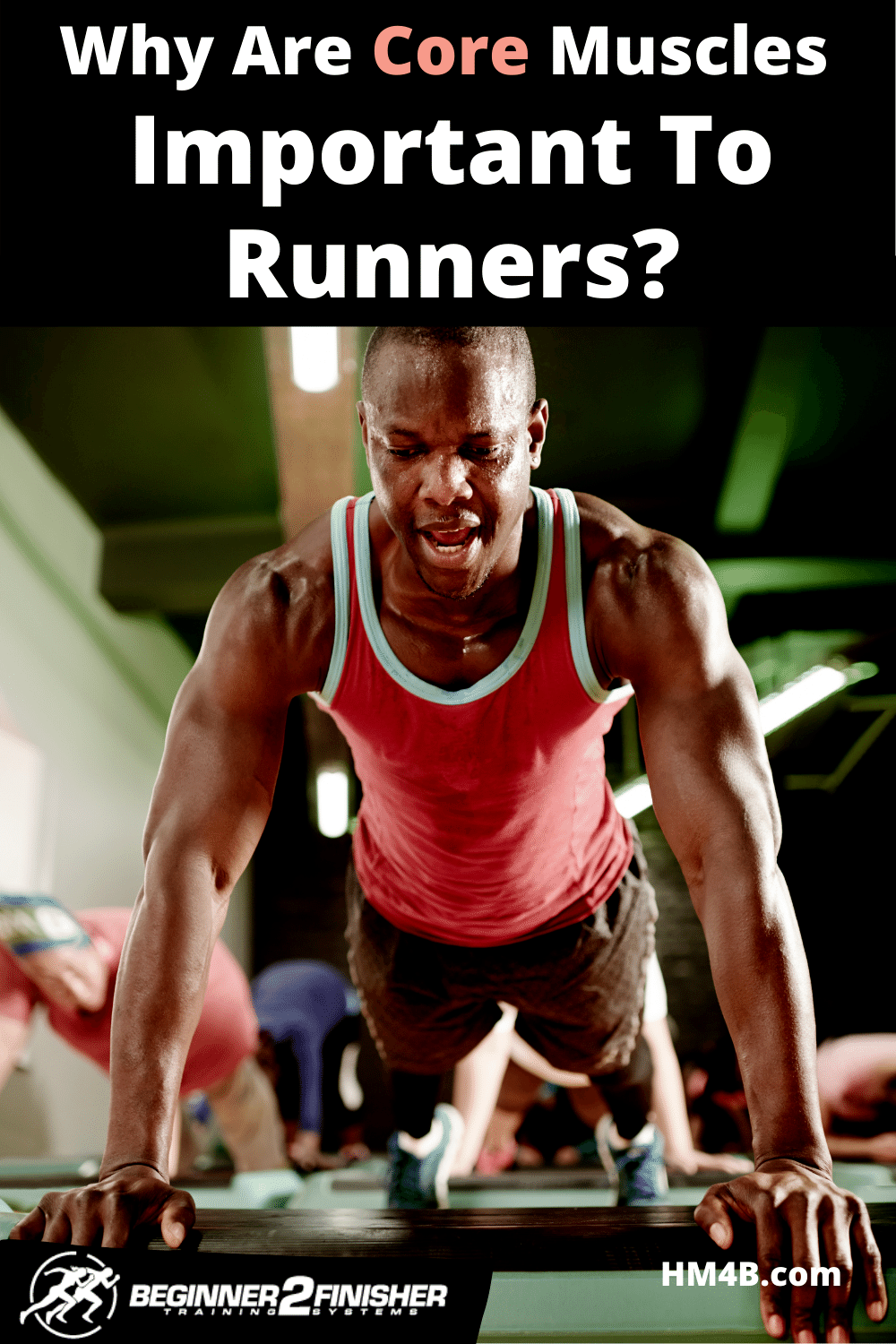In the world of fitness, there is always a lot of emphasis on having a “strong core.” When we think about the core muscles, the mind pictures six-pack abs and an endless number of sit-ups. Why are core muscles important to runners?
You should think of core muscles as a collection of muscles to help keep you stabilized during your workouts – including running. Having a strong core as a runner is important to prevent injury and keep good running form.
How Many Core Muscles Are There?
There are several muscles that make up your core.
- Rectus Abdominis – This is the most well-known muscle that can create six-pack abs. It covers a large area and is the most prominent muscle of the core.
- External Obliques – The obliques span the sides of the torso, on either side of the rectus abdominis.
- Internal Obliques – Below the external obliques, the internal obliques are deep core muscles.
- Transversus Abdominis – This is the deepest layer of the core muscles and wraps around the torso towards the back.
- Erector Spinae – The erector spinae are a collection of muscles and tendons that stretch along your back, from the sacrum at the base of the spine, all the way to the base of your skull.
What Are Signs of a Weak Core?
Your core is involved in almost every move your body makes, so there are many ways to tell if you have a weak core.
- Low back pain – If you’re experiencing low back pain, it’s a clear sign that your core muscles are not as strong as they should be. When your core muscles don’t fire, your back compensates for the lack of strength, leading to muscle strains.
- Discomfort when standing – Believe it or not, our core muscles do a lot of work to keep you stable and balanced as you stand. If standing for long periods of time causes back pain, chances are it’s because of your core.
- Poor posture – If you’re someone who tends to slouch, it could be because of weak core muscles. Good posture comes from a stabilized spine and reduces the unwanted curvature that can cause pain and discomfort.
How Do Strong Core Muscles Help Runners?
Cross-training for any activity is a good idea, but working on your core as a runner is critical to prevent running injuries. It’s easy to assume that the most important muscles for a runner are the lower extremities, but a lot of a runner’s power comes from the core.
Your core muscles are your stabilizers so they help keep you balanced on trails where the terrain isn’t always flat. They keep you upright and help you get a rhythm in your stride and move more efficiently.
Because running is high-impact, keeping your core muscles engaged while you run protects your low back and regulates your breathing.
Using your core and not compensating with other muscle groups means that you can improve your speed and endurance. With a strong core, you’ll be able to expend less energy trying to keep yourself stable. This is especially important for long-distance runners who may lose form as they reach the finish line.
Related: 10 Best Core Exercises For Runners
What Do Core Muscles Allow You to Do?
Developing core strength has a lot of benefits to your everyday life. Mundane tasks like bending over, lifting and carrying things, or sitting at your desk are made easier with strong core muscles.
Your core allows you to move your body comfortably, without hurting yourself. The rectus abdominis helps with flexion of the spine. Flexing your back reduces the space between your ribs and pelvis.
The external obliques also facilitate spine flexion, but they are also vital for core rotation and sideways bending. The internal obliques work with their external counterpart to complement rotation and side bending.
The transversus abdominis helps with stabilization rather than movement. It helps with breathing and compresses the internal organs.
Related: Best Stabilization and Balance Exercises For Runners
Can You Have a Strong Core Without Abs?
Visible abs are a feature everyone wants to achieve but there are more factors that go into developing defined ab muscles. Having a strong core is important to ab definition, but you can have a strong core without having the abs to prove it.
Despite having a strong core, a reason that you may not have defined abs could be a result of your body fat. No matter how strong you are, body fat is the factor that will either show off your muscles or keep them hidden.
Related: Can Running Give You Abs?
Maintaining a consistent, healthy diet is a way to keep your abs visible. Fluctuating between restrictive diets and then eating sugary foods can affect bloating and fat gain which can hide your ab strength.
Related: 12 Health Benefits Of Running You Shouldn’t Ignore!
How Do You Strengthen Your Core?
Compared to other muscle groups, strengthening your core can be fairly simple. You don’t need equipment, you can do the exercises almost anywhere, and they’re low impact so they won’t cause injury.
The benefit of most core exercises is that you can typically use the basic exercises and make some modifications to raise the intensity. No advanced equipment is required.
Related: Why Am I Having Trouble Gaining Muscles While Running?
What Are the Best Core Exercises for Beginners?
- Plank – This classic core exercise is excellent for stabilization. It’s an isometric exercise that not only engages every angle of your core but also strengthens the glutes and shoulders.
- Slide Plank – This variation of the plank primarily targets the obliques, but it’s still beneficial to the rest of the core and hips.
- Superman – This isometric exercise strengthens the erector spinae muscles along the back. It’s an exercise that will help with the stabilization of the core.
Final Thoughts
Runners who want to make a personal record and beat their best time should focus on building core strength. The muscles that make up your core stabilize your body and allow the rest of your body to be at its most efficient.
By incorporating core work into your training, you’ll notice an improvement in your running performance and spend less time tending to injuries and sore muscles. You’ll also reap the benefits in your day-to-day life too.
Related: 11 Reasons Why Your Running Performance Isn’t Improving!
| Help support me and subscribe to my YouTube channel. YouTube video - 30 ways to make your runs less painful! Coach Scott's Credentials:
|
To sign up for a FREE half marathon training schedule, log sheet, and pace predictor CLICK HERE.

Recommended gear for runners
Connect with me:
| facebook.com/BeginnerToFinisher/ |
References
https://www.verywellfit.com/abdominal-muscles-anatomy-3120072
https://www.bodybuilding.com/content/ab-training-6-reasons-your-abs-arent-showing.html
https://www.health.harvard.edu/healthbeat/the-real-world-benefits-of-strengthening-your-core



6 thoughts on “Why Are Core Muscles Important To Runners?”